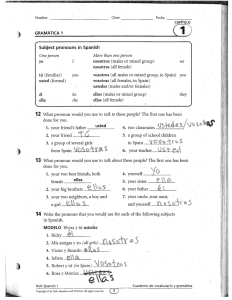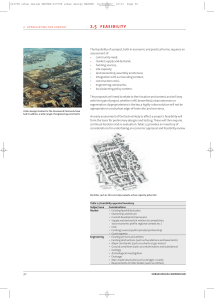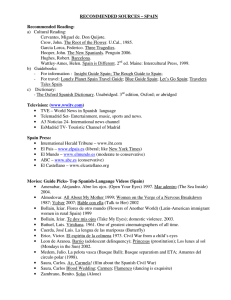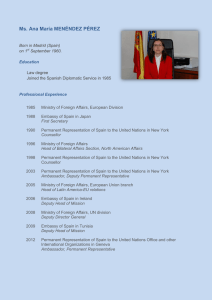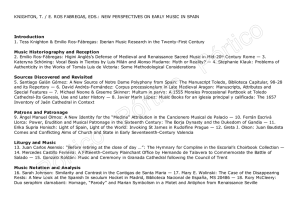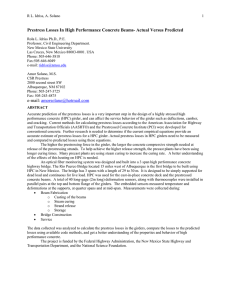Efficiency, effectiveness and implementation feasibility of energy
Anuncio
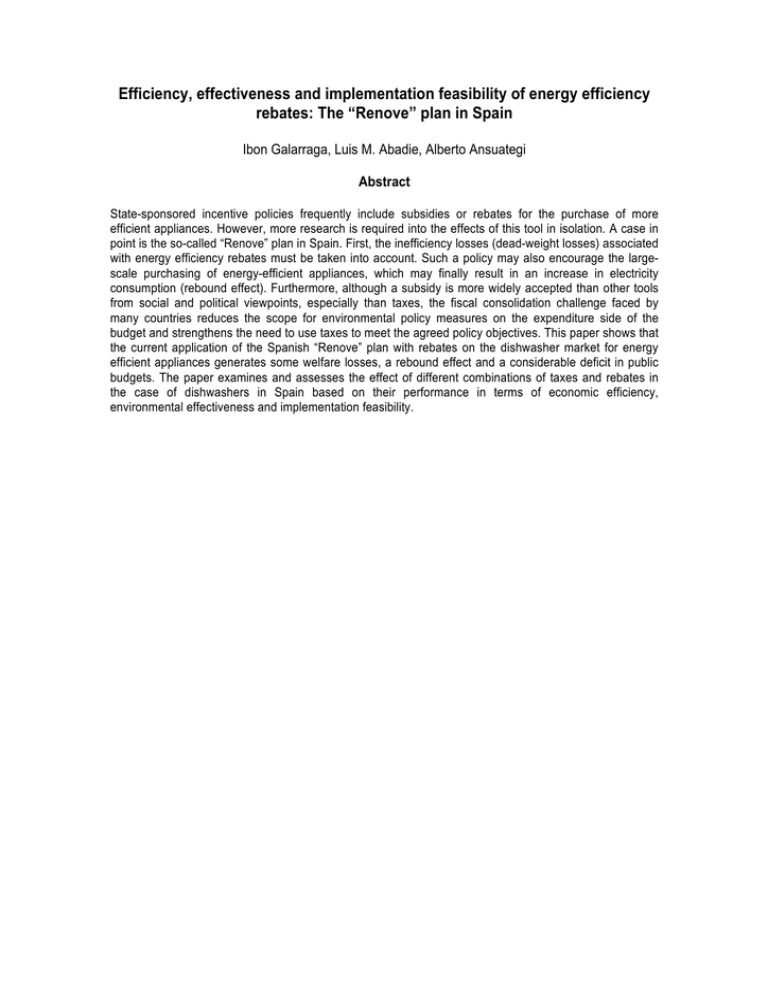
Efficiency, effectiveness and implementation feasibility of energy efficiency rebates: The “Renove” plan in Spain Ibon Galarraga, Luis M. Abadie, Alberto Ansuategi Abstract State-sponsored incentive policies frequently include subsidies or rebates for the purchase of more efficient appliances. However, more research is required into the effects of this tool in isolation. A case in point is the so-called “Renove” plan in Spain. First, the inefficiency losses (dead-weight losses) associated with energy efficiency rebates must be taken into account. Such a policy may also encourage the largescale purchasing of energy-efficient appliances, which may finally result in an increase in electricity consumption (rebound effect). Furthermore, although a subsidy is more widely accepted than other tools from social and political viewpoints, especially than taxes, the fiscal consolidation challenge faced by many countries reduces the scope for environmental policy measures on the expenditure side of the budget and strengthens the need to use taxes to meet the agreed policy objectives. This paper shows that the current application of the Spanish “Renove” plan with rebates on the dishwasher market for energy efficient appliances generates some welfare losses, a rebound effect and a considerable deficit in public budgets. The paper examines and assesses the effect of different combinations of taxes and rebates in the case of dishwashers in Spain based on their performance in terms of economic efficiency, environmental effectiveness and implementation feasibility.
